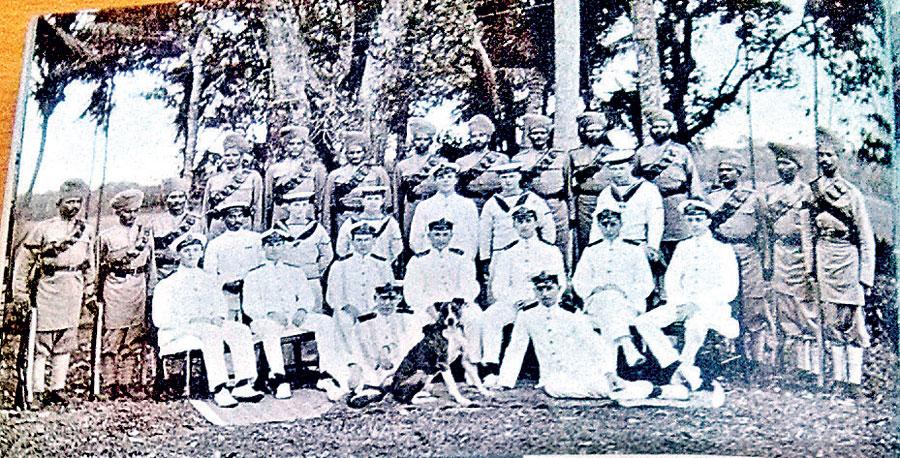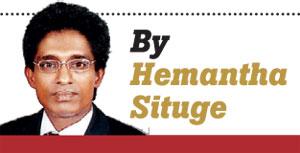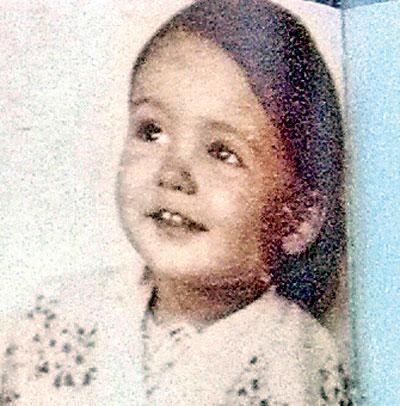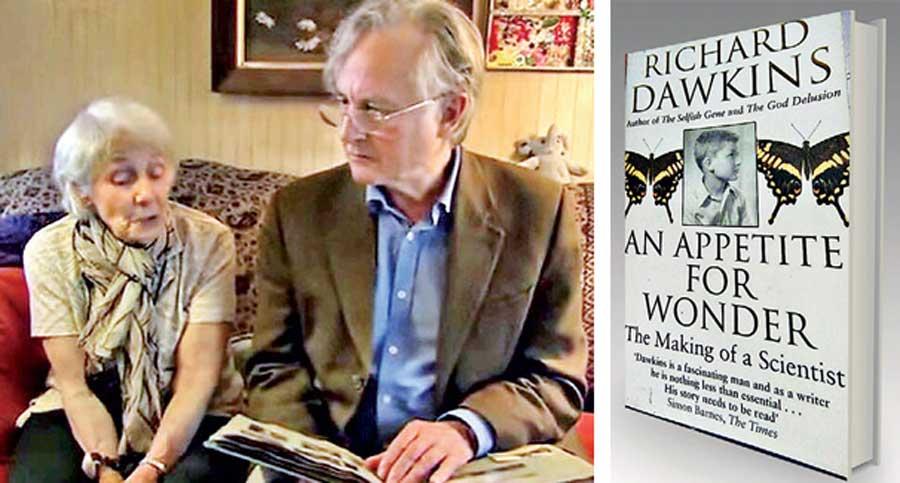Saturday, April 27, 2019
Sunday, April 7, 2019
Tracing Dawkins’ root to Lanka By Hemantha Situge The Daily Mirror Monday 8th April 2019 at page A11
Tracing Dawkins’ root to Lanka
How world renowned evolutionary Biologist and self proclaimed Agnostic Prof Richard Dawkins traces his roots in his recently published memoirs

- Prof. Richard Dawkins has many salient connections with Sri Lanka
- Grandfather Alan Wilfred Ladner fondly was a Wireless Engineer at Marconi, arrived in Ceylon during WWI
The Sri Lankan born Jean Mary Vyvyan Ladner the mother of the well-known Oxford Scientist, an indefatigable champion of Darwinism, Richard Dawkins’s turned one hundred years latter part of 2018. She lives the eve of her life, in Chipping Norton near Oxford in the United Kingdom.
Richard Dawkins has many salient connections with Sri Lanka. His Cornish maternal grandfather Alan Wilfred Ladner fondly known as Bill was a Wireless Engineer employed by Guglielmo Marconi, who arrived in Ceylon (as it was known now Sri Lanka) in 1914 at the First World War.

Richard Dawkins has many salient connections with Sri Lanka. His Cornish maternal grandfather Alan Wilfred Ladner fondly known as Bill was a Wireless Engineer employed by Guglielmo Marconi, who arrived in Ceylon (as it was known now Sri Lanka) in 1914 at the First World War.
As Richard Dawkins recounts in the first chapter: Genes and pith helmets of his memoir An Appetite For Wonder. The Making of a Scientist that :
“Bill Ladner’s skills as a radio engineer were in demand, and he was sent to the Royal Navy as a smart young officer to the southern tip of what was then Ceylon to build a radio station at that strategically vital staging post in the empire’s shipping lines”
The southern tip mentioned by Richard Dawkins is Matara, where he was stationed in Ceylon for four years. Connie Wearne, the grandmother of Richard or the fiancée of Bill followed him out where she stayed in a local vicarage, from which they were married.
Richard Dawkins also asserts that: “My mother, Jean Mary Vyvyan Ladner, was born in Colombo in 1916” Dawkins mother was born in Cinnamon Gardens, Colombo 07 and spent her first two years of her life at Matara.
 Whilst their sojourn in Matara, Richard’s mother was looked after by a Sinhalese nanny by the name of Hinne Hami Wickramaratne.
Whilst their sojourn in Matara, Richard’s mother was looked after by a Sinhalese nanny by the name of Hinne Hami Wickramaratne.100 year old, Richard’s mother Jean still pines for her nanny.
Richard’s grandfather Bill is acclaimed as one of the early photographers in Ceylon.
Bill captured many photographs of the Southern Ceylon. Richard Dawkins sister Sarah Kettlewell possesses an album of about forty rare photographs of the war-torn picture-prohibited Southern Ceylon of the by-gone days.
Coincidentally Sarah’s husband Michael Kettlewell was a distinguished Surgeon and an Oxford academic, who supervised many postgraduate students from Sri Lanka. During the war, his father Dick Kettlewell served in Anuradhapura.
Did Richard Dawkins’s grandfather Bill Ladner was assigned by the British Government to install the earliest known radio station in Ceylon at the southern tip of Ceylon – Matara?
Richard Dawkins memoir publishes a rare photograph of a group of Naval officers sent to Ceylon where his maternal grandfather Bill Ladner seated third from the left, assists to build a wireless station during the First World War, together with turbaned bearded Indian Gurkha regiment in the background in an identified location under an unknown banyan tree.
Richard also carries a photograph of his grandmother Connie together with the dog, who is found in the same group photograph.
Richard poses the query: “Was the dog station mascot? It seems to be the same dog my grandmother is petting.”
When the war was over in 1919 the Dawkins memoir also states that: “The family returned to England when my mother was three”, and publishes a photograph when she was three years of age.
Coincidentally Sri Lankan born 100-year-old mother Jean’s son, legendary Richard Dawkins was honoured by well-famed Sri Lankan Ichthyologist Rohan Pethiyagoda who created Dawkinsia as a new genus name, ‘In recognition of his contribution to the public understanding of evolutionary science.’

Subscribe to:
Posts (Atom)

